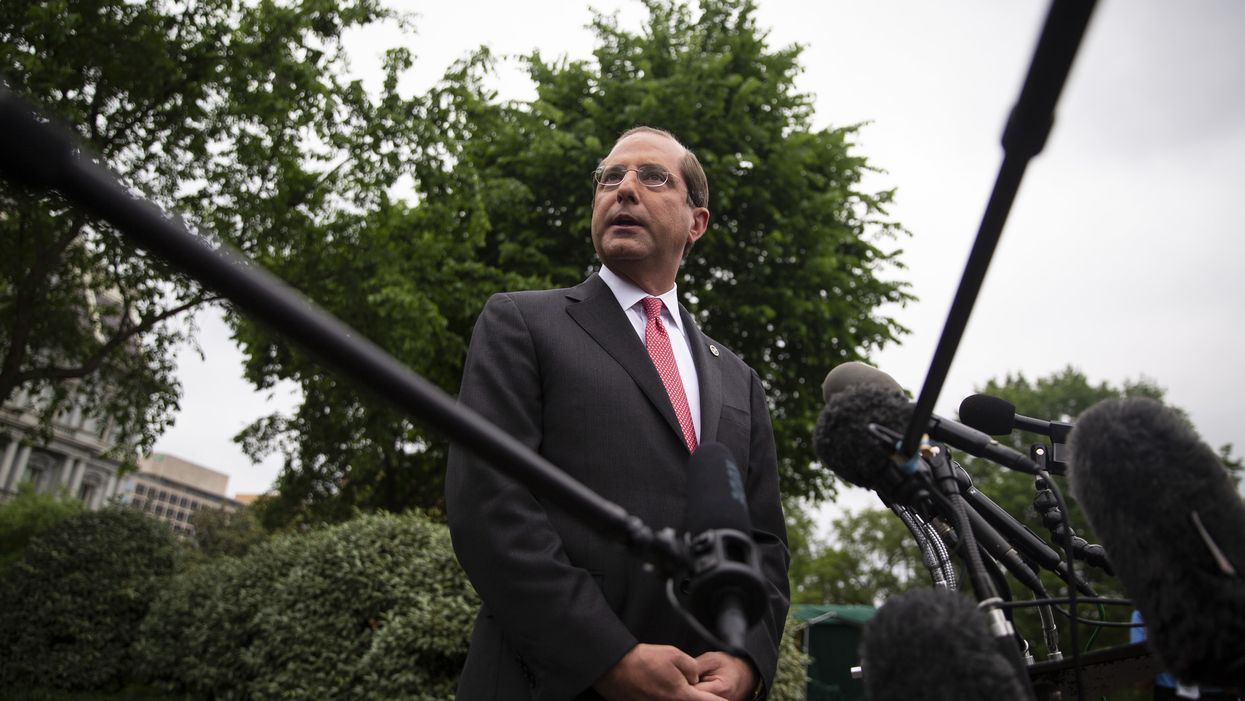
Al Drago/Bloomberg via Getty Images

Transparency for American patients is here
Health and Human Services Secretary Alex Azar announced on Wednesday new regulations requiring prescription drug companies to disclose list prices in television advertising.
Azar said the move is intended to provide transparency to patients and allow them to have informed conversations with their doctors about prescription options.
"We're doing it because we believe that transparency in health care is important," Azar explained during an appearance Wednesday on Fox News. "That you have a fundamental right as a patient to be in control and being in control means when you go see a doctor, when you go into the pharmacy, you ought to know what something costs before you go in and before you're handed a surprise bill."
The administration believes it will increase competition and force pharmaceutical companies to lower prices.
"We think list prices are going to go down. We think that this will cause drug companies to see an impact on their sales if their prices are too high and people find that they're too high," he said.
Last May, President Donald Trump and Azar introduced the "American Patients First " blueprint, which laid out the administration's vision for reducing the cost of prescription drugs.
"The blueprint laid out four strategies for solving the problems patients face: boosting competition, enhancing negotiation, creating incentives for lower list prices, and bringing down out-of-pocket costs," HHS wrote in a release on Wednesday.
The final rule applies to all prescription medications covered by Medicare or Medicaid that cost $35 or more for a month's supply or the usual course of therapy, according to the release.
"The 10 most commonly advertised drugs have list prices ranging from $488 to $16,938 per month or usual course of therapy," the release said. "Patients deserve to know what a drug costs as they discuss their options with their doctor."
Pharmaceutical companies spend more than $4 billion each year in TV advertising, Azar said.
"That is their most impactful form of advertising," he added. "That is where the patient has the most need of being informed."
Prices are expected to appear in text toward the end of the drug's commercial.
The Pharmaceutical Research and Manufacturers of America, the main trade group, argued that the disclosure could harm patients.
"We are concerned that the administration's rule requiring list prices in direct-to-consumer television advertising could be confusing for patients and may discourage them from seeking needed medical care," the group told The Associated Press.
Some drugmakers claimed it would violate its company's right to free speech, the Washington Post reported.
But the government has required carmakers to disclose its prices for decades, Azar pointed out.
"Prices of automobiles are vastly less important to your health and affordability than drugs," he said.
New Jersey-based Johnson & Johnson has already started disclosing the cost of Xarelto. a blood thinner, in its TV commercials.
Enforcement will rely on drugmakers suing each other for violations.
"There are very large legal practices built on pharma companies suing each other," Azar said, adding that it's a "quite effective mechanism."
A recent Kaiser poll showed that 29 percent of adults have not taken their medications as prescribed because of the cost.
Forty-seven percent of Americans have high-deductible insurance plans, which require patients to pay list prices for prescriptions until they meet their deductibles. This means the patients must spend thousands of out-of-pocket dollars before seeing any benefit from their plans.
The final rule will take effect 60 days after it is published in the Federal Register. It's scheduled to be published May 10.